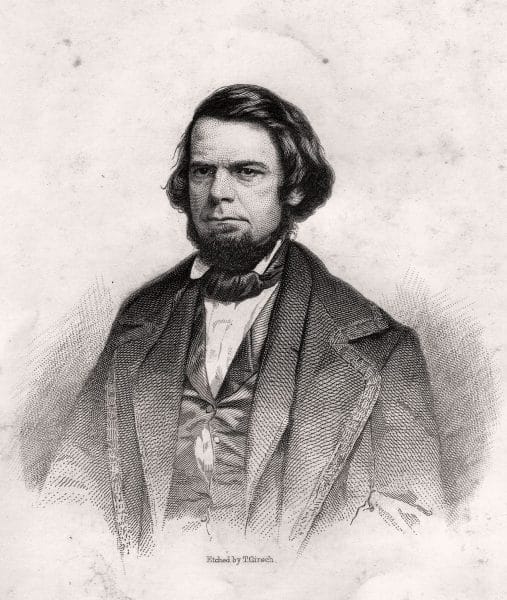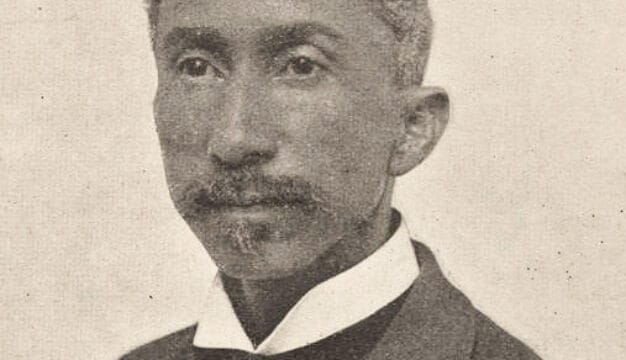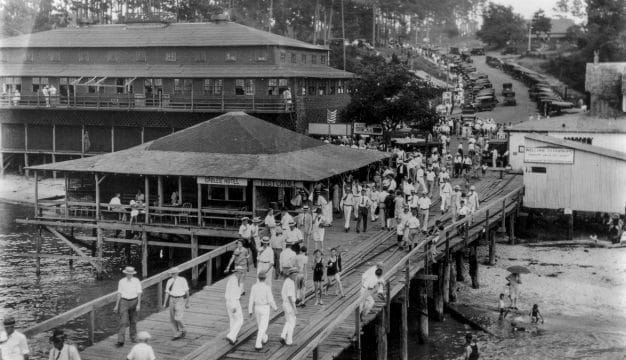William Russell Smith
 William Russell Smith
William Russell Smith (1815-1896) established the state’s first literary magazine and wrote the first play by an Alabama writer to be performed by a professional acting company. Also a politician, he represented the Whig Party in the Alabama House of Representatives and served three terms in the U.S. Congress, as a Democrat, Independent, and Know-Nothing. The last two times he was elected, he defeated both the Democrat and the Whig candidates. Although Smith voted against Alabama’s secession ordinance, he won election to the Confederate Congress.
William Russell Smith
William Russell Smith (1815-1896) established the state’s first literary magazine and wrote the first play by an Alabama writer to be performed by a professional acting company. Also a politician, he represented the Whig Party in the Alabama House of Representatives and served three terms in the U.S. Congress, as a Democrat, Independent, and Know-Nothing. The last two times he was elected, he defeated both the Democrat and the Whig candidates. Although Smith voted against Alabama’s secession ordinance, he won election to the Confederate Congress.
Smith was born on March 27, 1815, in Russellville, Kentucky, to Ezekial and Elizabeth Hampton Smith. After the death of his father, his mother moved the family to Huntsville, and in 1820 to Tuscaloosa. His mother died in 1823, and Smith and his four siblings were raised in foster homes. He proved to be an outstanding student and found a sponsor in Tuscaloosa attorney George W. Crabb, who financed his three and a half years of study at the University of Alabama. Smith was in the first group of students enrolled when the university opened in 1831. While there, Smith began writing poetry and in 1833 published a collection of poems, College Musings; or Twigs from Parnassus, the first book of poetry published in the state by an Alabamian. The same year, he published a second book, The Bridal Eve, a verse romance.
Smith left the university without graduating to study law in Crabb’s office and was admitted to the Alabama State Bar in 1835 and opened his own office in Greensboro. In 1836, Smith’s brother Sidney was killed in the Goliad Massacre during the Texas War of Independence, and Smith travelled to Mobile to volunteer for the forces being raised to join the battle. The war in Texas ended before he was able to serve, however. In Mobile, Smith established The Bachelor’s Button, the first literary periodical published in Alabama. Smith produced four issues of the magazine in Mobile in 1836 and published the last number in January 1837 after he moved to Tuscaloosa. While in Mobile, Smith also wrote a play, Aaron Burr, or the Emperor of Mexico, which was performed by the Ludlow-Smith dramatic company in Mobile, featuring Sol Smith as the title character.
On his return to Tuscaloosa, Smith edited a newspaper, The Independent Monitor, and entered politics, being elected mayor of Tuscaloosa in 1839. He was elected as the Whig candidate to the Alabama House of Representatives in 1841. In 1843, he changed party allegiance to the Democratic Party but was not nominated. That same year, Smith married Jane Binion, with whom he had one son. The following year, he moved his law practice to Fayette County. Jane Binion Smith died in 1844, and in 1847 Smith married Mary Jane Murray; the couple had three children, two of whom lived to adulthood.
In 1850, he was elected circuit judge and also ran for the U.S. House of Representatives, winning the Democratic nomination in his district and defeating the Whig candidate in the general election. In 1852, having fallen out of favor with the Democrats, he ran as an independent and was re-elected. Smith’s second wife died in 1853, and he married for a third time in 1854 to Wilhelmine Easby. They had eight children, six girls and two boys. For the election of 1854, Smith ran as a Know-Nothing, or American Party, candidate, and won a third term in Congress.
In December 1860, he was elected as a delegate representing opponents of secession to the Alabama Secession Convention, which met in Montgomery on January 7, 1861. He voted against the Ordinance of Secession, which passed 61 to 39, and refused to sign it. He remained in Montgomery after the convention adjourned to compile and edit a book on the proceedings, published that same year, entitled The History and Debates of the Convention.
Despite his opposition to outright secession, Smith organized and commanded the Twenty-sixth Alabama Infantry regiment before being elected to the Confederate Congress, where he served throughout the Civil War. In 1865, he ran for governor but lost. In 1870, he became president of the University of Alabama but resigned at the end of the year.
In 1879, Smith moved to Washington, D.C., and resided there for the rest of his life. His most important publication in Washington was his autobiography, Reminiscences of a Long Life (1889). Upon his death in 1896, Smith was buried in Tuscaloosa, but in 1916, his body was moved to Washington, D.C., and interred beside his third wife in Mount Olivet Cemetery.
Selected Works by William Russell Smith
College Musings; or, Twigs From Parnassus (1833)
As It Is (1860)
The History and Debates of the Convention of the People of Alabama, Begun and Held in the City of Montgomery, on the Seventh Day of January 1861, in Which is Preserved the Speeches of the Secret Sessions and Many Valuable State Papers (1861)
Reminiscences of a Long Life (1889)
Additional Resources
Easby-Smith, Anne. William Russell Smith of Alabama: His Life and Works. Philadelphia: Dolphin Press, 1931.
Williams, Benjamin Buford. A Literary History of Alabama: The Nineteenth Century. Rutherford, N.J.: Fairleigh Dickinson University Press, 1979.



